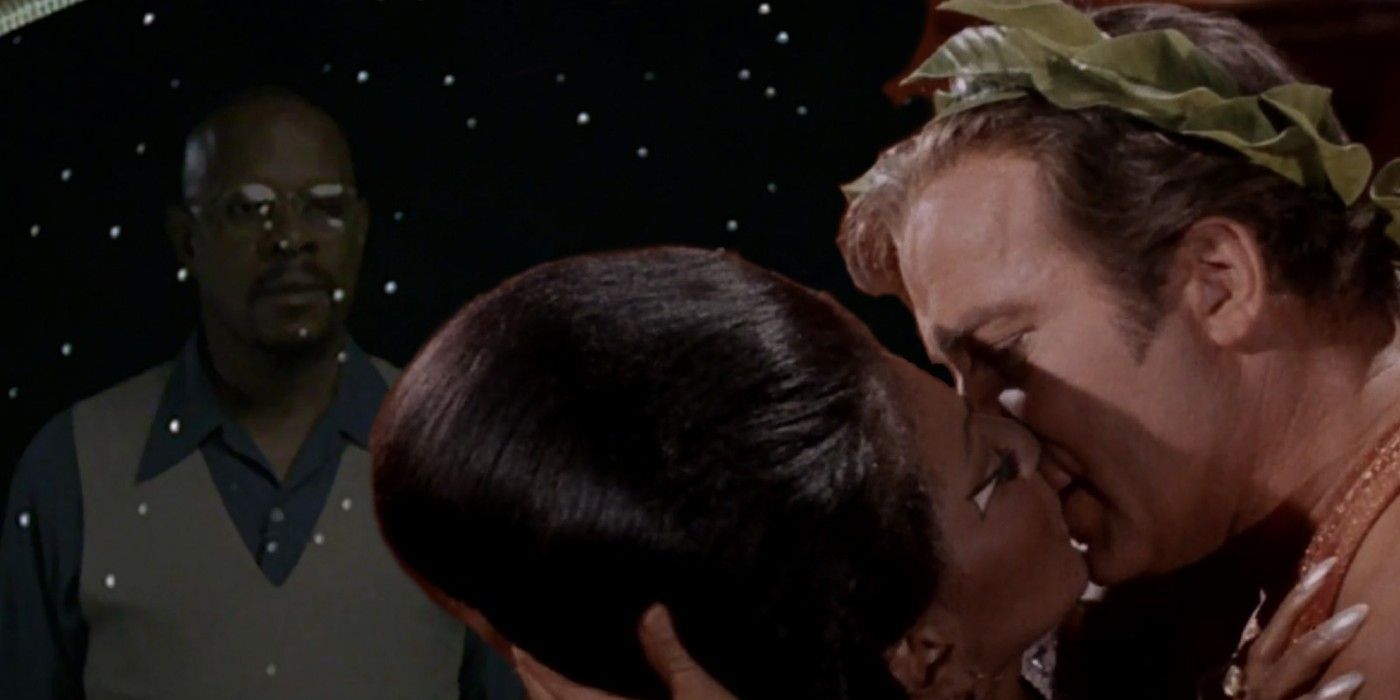
One of the most beloved franchises in history, Star Trek is a series of adventures told across TV and film that is filled with amazing characters, intelligent stories, and diverse thoughts. Spanning decades in the real world and hundreds of years in the timeline of the saga, Star Trek has gone through a number of changes, and not all of them have been met with universal love from the fans.
From time to time, Star Trek will touch on a subject that some of the audience members may not be ready to deal with, while at other times fans will turn against something that may seem inconsequential to an outsider. Whatever the case, there are many controversies that have cropped up over the six decades that sci-fi fans have been watching the adventures of mankind as it goes where no man has gone before.
10 The Kiss Between Kirk & Uhura
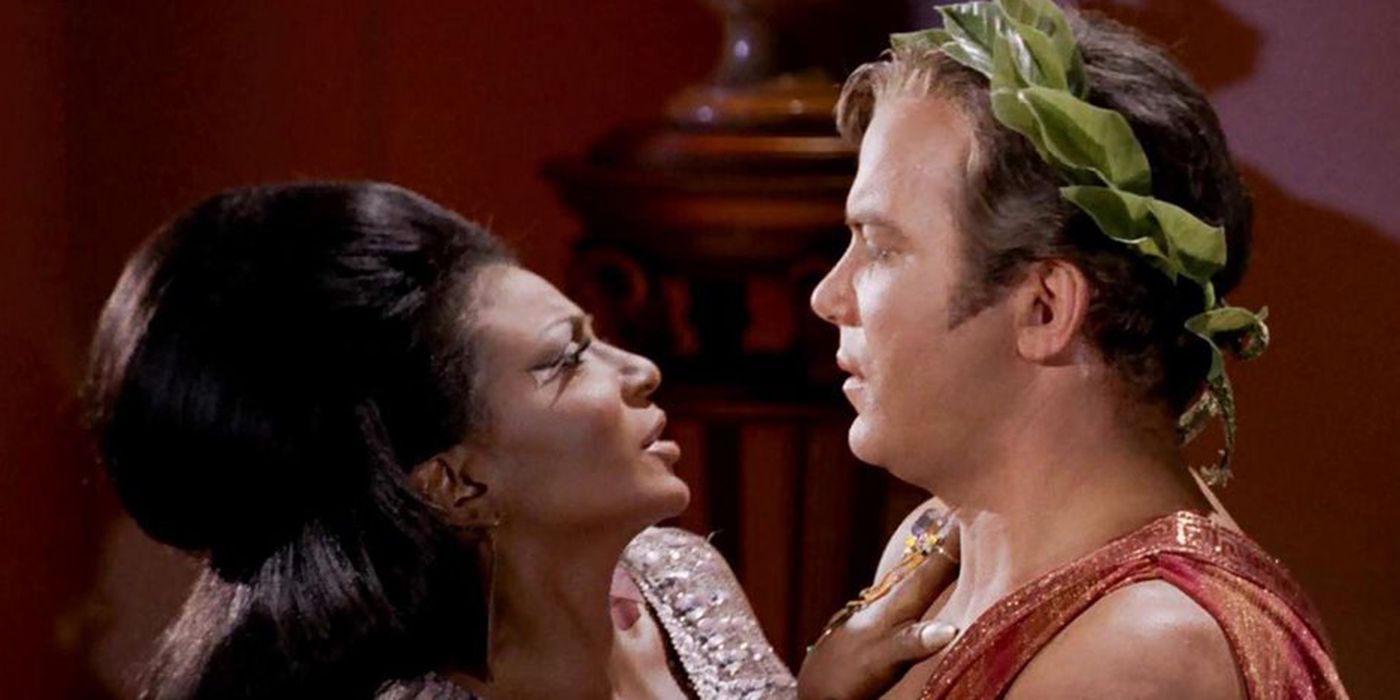
Possibly the best-known controversy in Star Trek history—and one of the biggest moments in the history of television itself, came from Season 3, episode "Plato's Stepchildren." In the episode, Captain Kirk and Lieutenant Uhura kiss, marking the first scripted interracial kiss to ever appear on American television.
Because of the kiss, some network execs at NBC feared that Southern stations would refuse to run the episode. In truth, the vast majority of feedback to the episode was positive, although there was a fair number of complaints from viewers.
9 Sisko Commits A War Crime
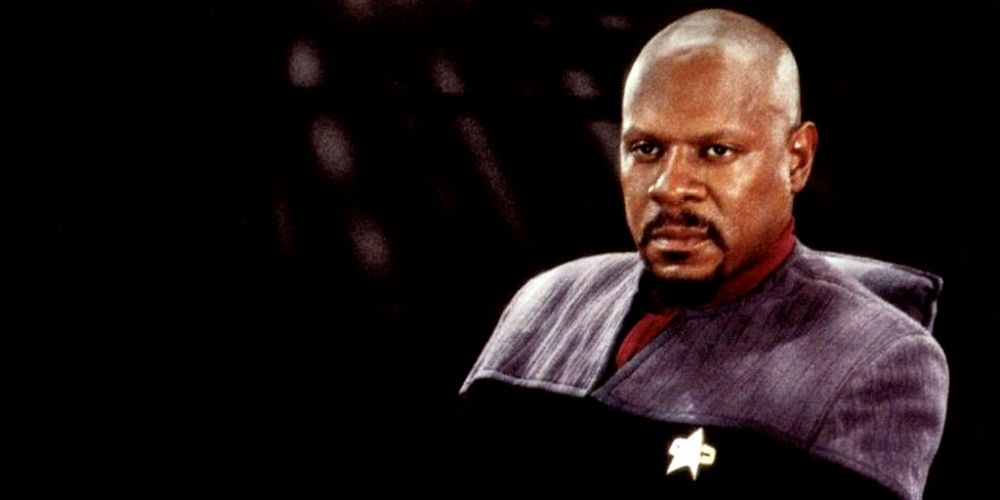
While Star Trek is known for its vision of a hopeful future, Star Trek: Deep Space 9 was a rather dark series, and there isn't a darker moment in DS9 than in the Season 6, episode "In the Pale Moonlight."
By this point in the series, the Dominion War was well underway, and Captain Sisko knew that the Federation would lose if they couldn't get the Romulans to join them in the fight. To convince Romulus to battle the Dominion, Sisko commits a war crime by killing a Romulan diplomat and framing the Dominion for it. Many fans were deeply upset by the idea of a Starfleet captain doing something so heinous, even if it was for the greater good.
8 Picard & Riker Turn A Man Into Goo
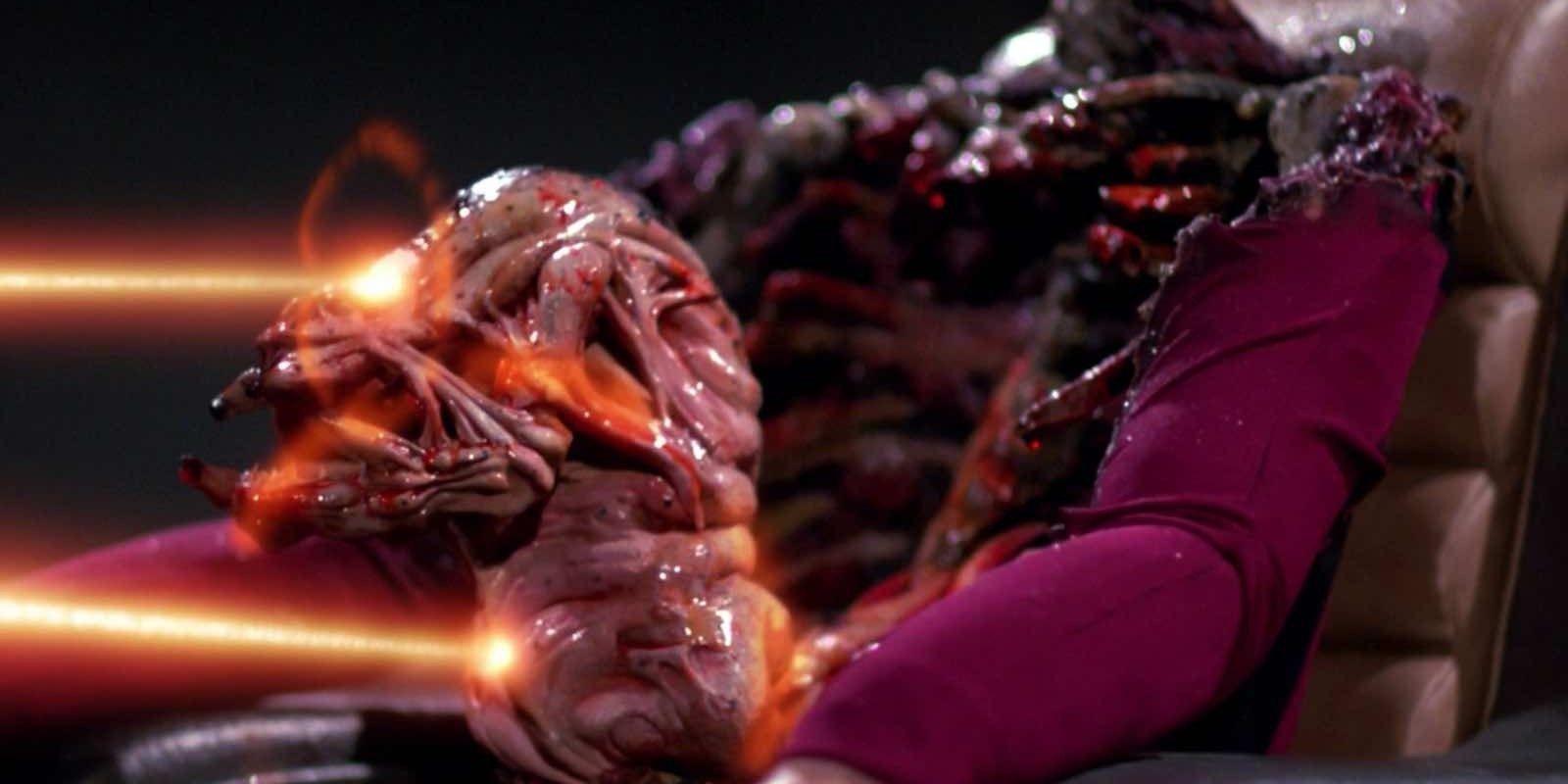
While Star Trek: Discovery and Picard have added a fair amount of swearing and even some Klingon nudity to the franchise, every other Star Trek show and film has been safely PG to PG-13. But there is a moment in the first season of Star Trek: The Next Generation that caused some problems.
In the episode “Conspiracy," Captain Picard and the crew of the Enterprise learn that many high-ranking Starfleet admirals are being controlled by alien parasites. When Picard and Riker find the main parasite and realize that in order to stop it they must kill the man it has taken over, they fire their phasers and, in a very gross scene, slowly turn the man into goo. Viewers were rightfully disgusted that such a moment would appear on Star Trek.
7 The Look Of Discovery's Klingons
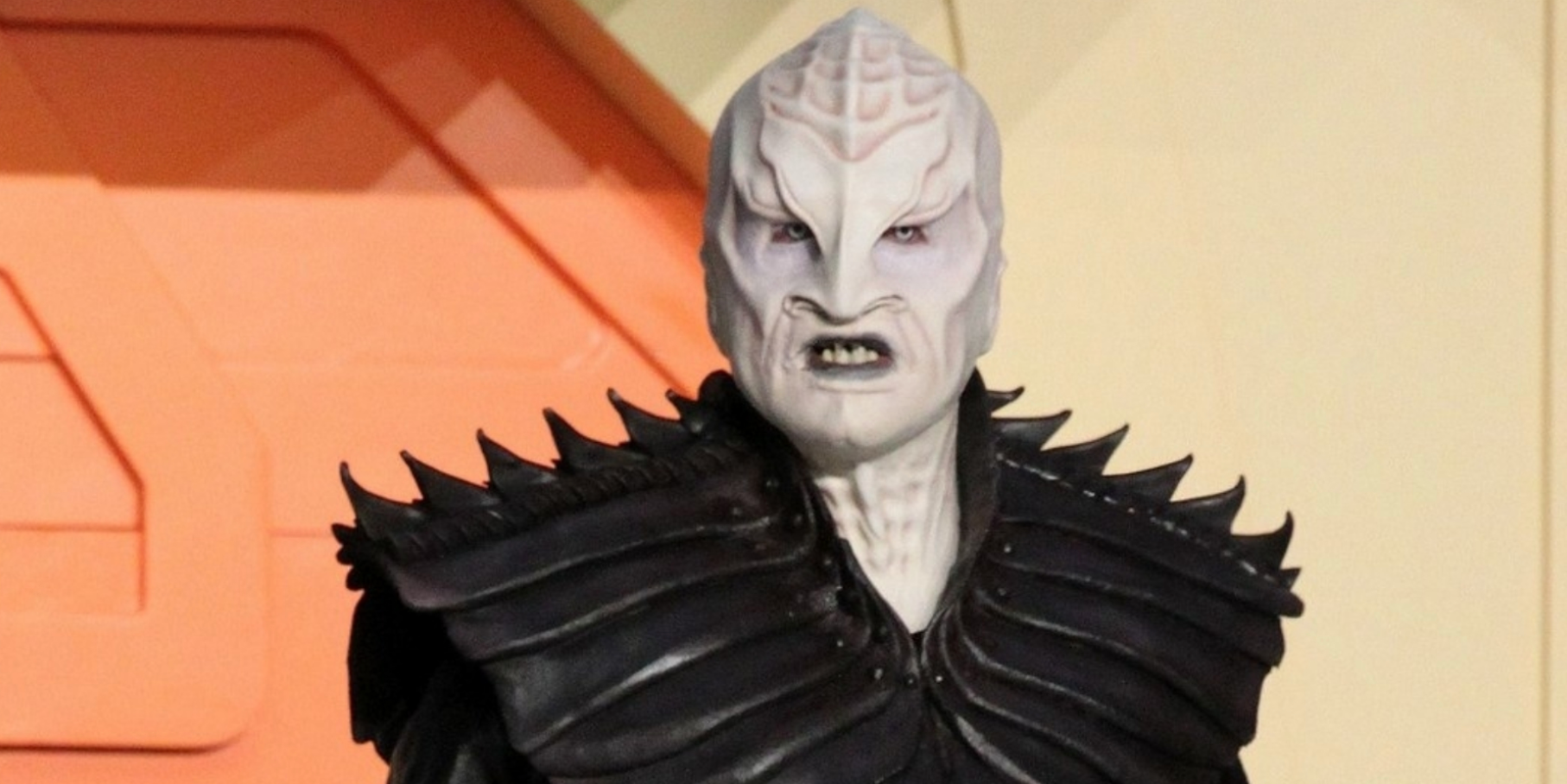
Star Trek has had a few issues with the look of Klingons over the years. In the original series, the main rivals of the Federation were rather human-looking, but with large eyebrows and too much bronzer on. When Klingons appeared in Star Trek: The Motion Picture, they suddenly looked very different, with ridges going down the front of their heads. This basic look was refined over time but mainly stayed the same.
But when the Klingons were once again redesigned for Star Trek: Discovery, the fanbase revolted. Along with changing the skin tone of the Klingons from a single color to a variety, the race was now hairless and the ridges changed shape. By season two of the show, Klingons regained their hair and the ridges were toned down to better fit with previous versions.
6 The Enterprise Song Was A Bad Tune
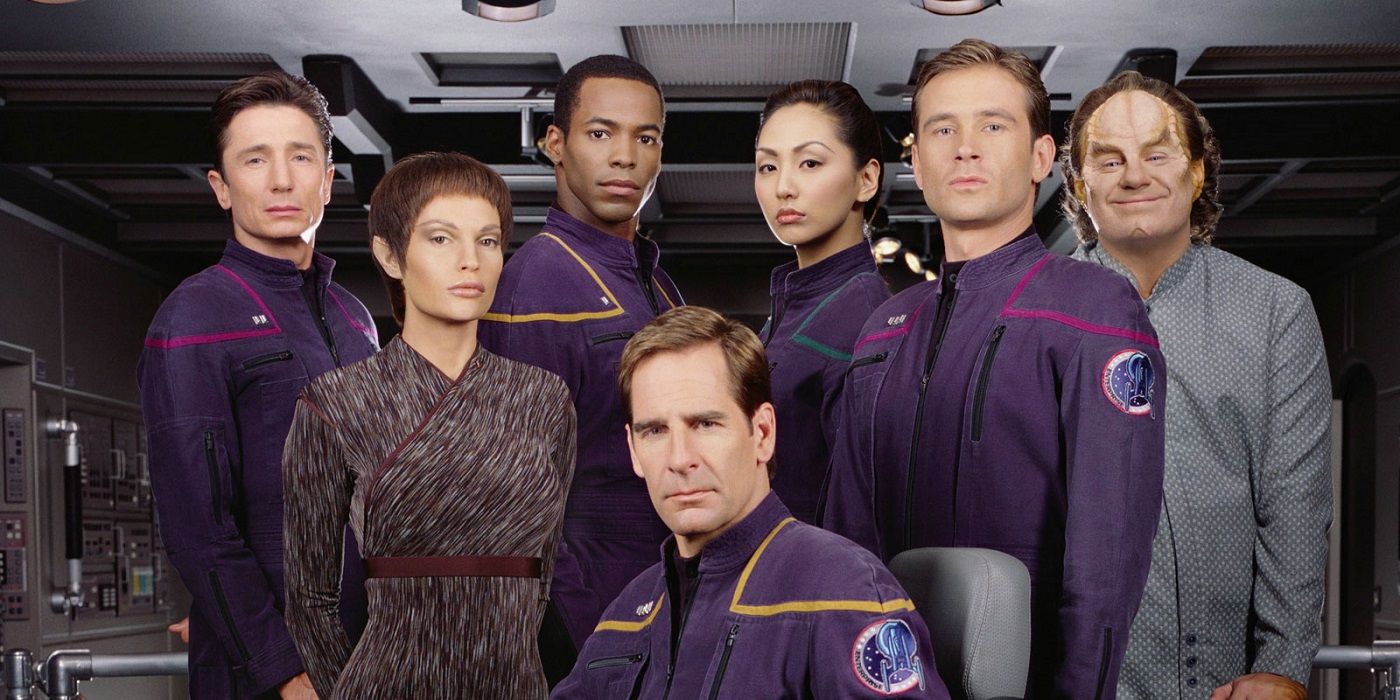
To an outsider, the opening theme music for a Star Trek series may seem like a trivial matter. After all, the opening credits aren't a part of the story, and each show has its own unique credits sequence, so why would one show cause a commotion? It was a controversy when Star Trek: Enterprise premiered with a song that not only had lyrics but was a version of a tune from the movie Patch Adams.
The song, "Where My Heart Will Take Me," sung by Russell Watson, is a cover of "Faith of the Heart" which was written by Diane Warren and performed by Rod Stewart for the Robin Williams film. Fans freaked out over the song, and it is still a sore subject to this day.
5 The Enterprise Ending Left Everyone Upset

Staying with Captain Archer and the crew of the first Enterprise, Star Trek: Enterprise was a show that seemed to never quite connect with viewers like Next Generation, DS9, and Voyager did. As a result, Enterprise lasted just four seasons, and its finale left fans enraged.
The final episode of the series, “These Are the Voyages," is filled with moments that upset viewers, like the 60-year time jump and the unnecessary killing of a main character, but what really caused a controversy was the inclusion of Commander Riker from Next Generation. Adding Riker to the finale of Enterprise pulled the attention away from the characters from the show, angering fans.
4 Riker Deals With Gay Conversion Therapy
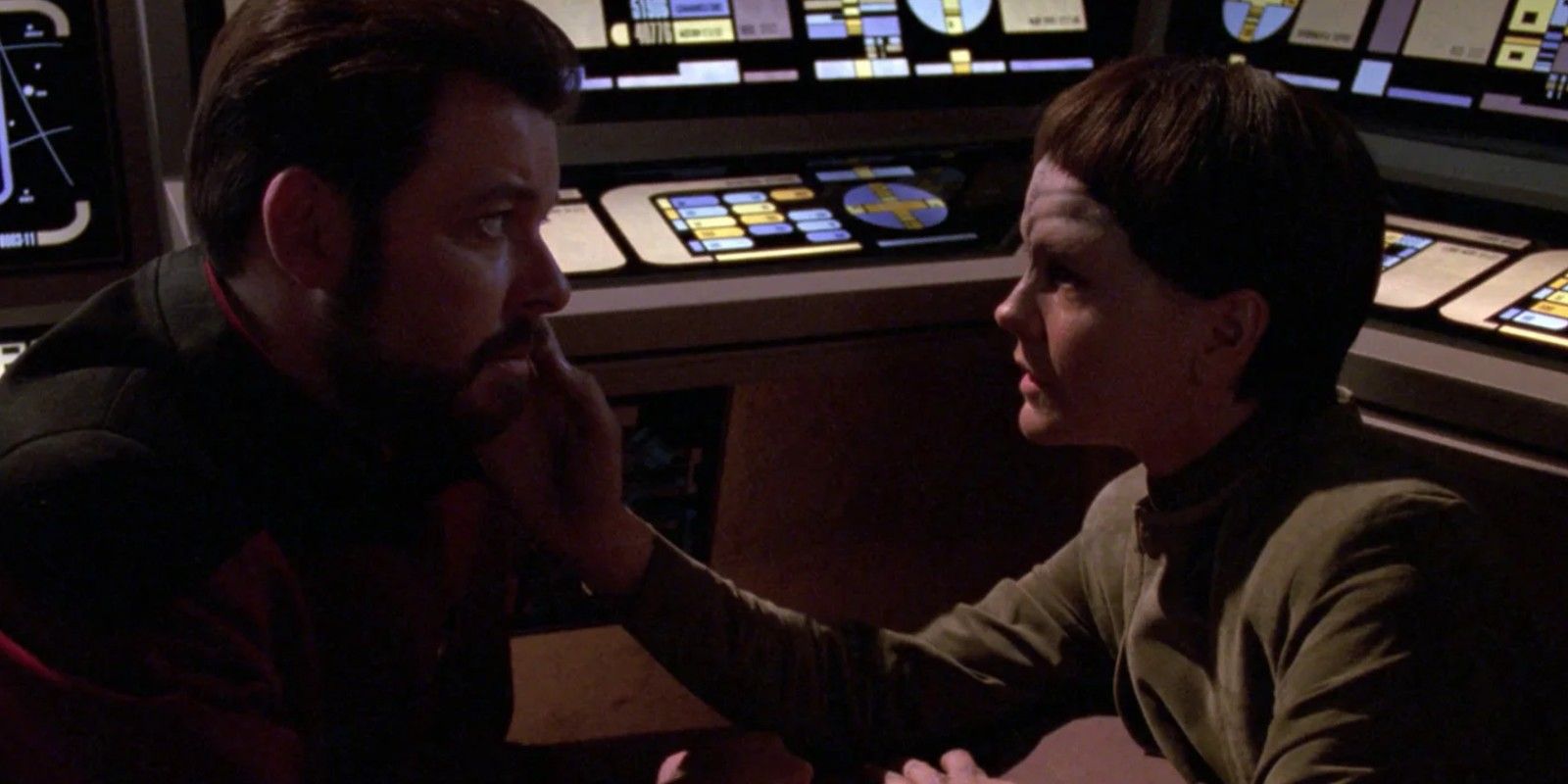
Star Trek has been relatively good about discussing all forms of discrimination, but one exception is the Star Trek: The Next Generation episode “The Outcast.” When the Enterprise comes in contact with a race of genderless beings called J’naii, Riker meets Soren and the two hit it off.
After Soren reveals that she has considered herself to be a woman since she was a child, she is forced by her government to undergo therapy so she will become genderless again. Understandably, fans of Star Trek had serious problems with the episode's ending.
3 Benny Russell Has A Dream
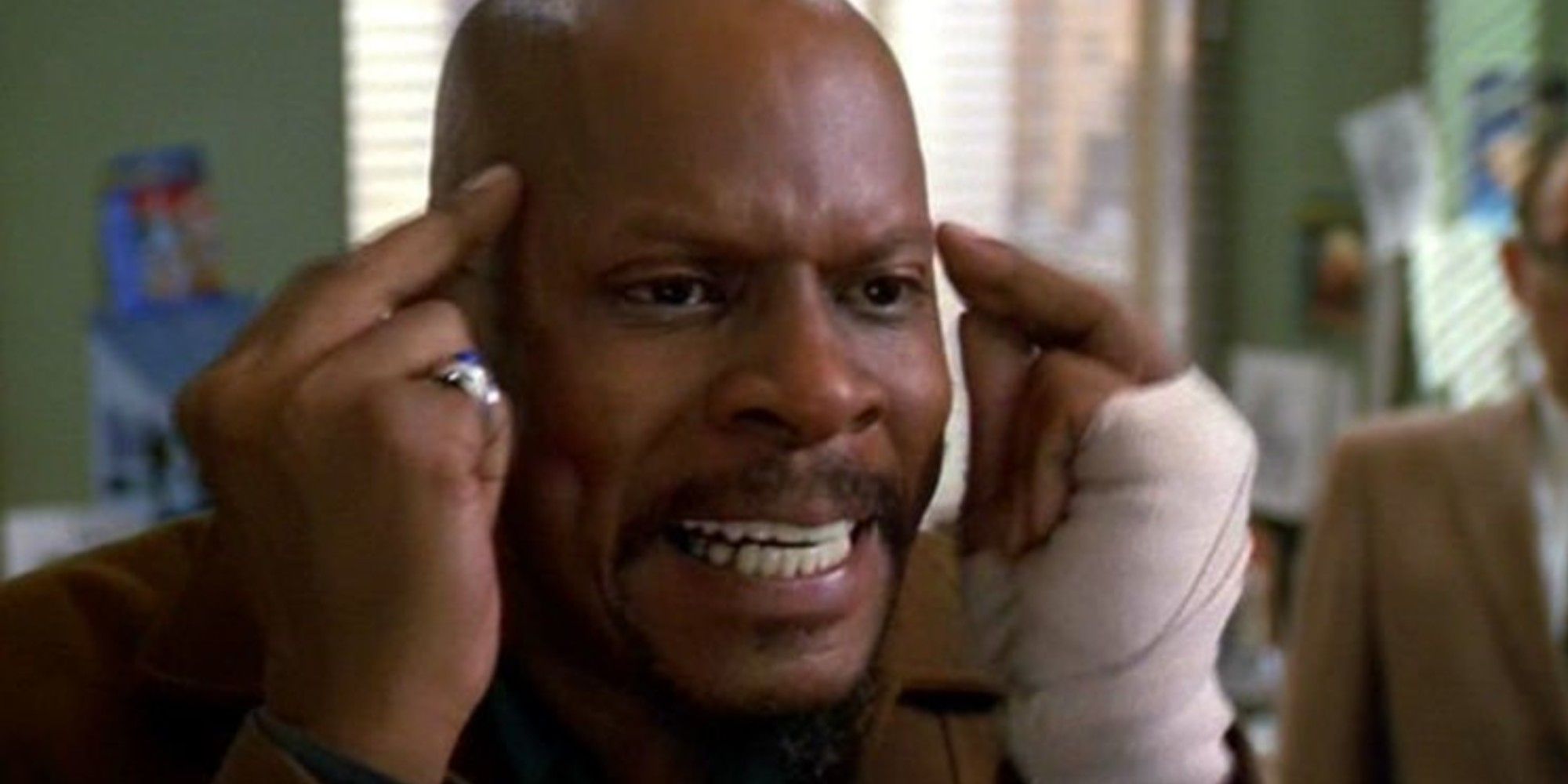
Star Trek is known for taking on real-world issues, like racism, by telling smart and engaging sci-fi stories, and in many ways, the Deep Space Nine episode “Far Beyond the Stars" exemplifies that tradition. The episode, considered the best of the series, focuses on a sci-fi magazine publisher in the 1950s. When one of the writers, Benny Russell, turns in a story about a future space station that is led by a Black man, the publisher refuses to print it, leading to Benny suffering a nervous breakdown.
“Far Beyond the Stars" is a heartbreaking and beautiful episode that Avery Brooks not only does an amazing job acting in but directs. What upset some fans wasn't that the episode dealt with racism, but that it posited the idea that Star Trek—or at least DS9—only exists in the imagination of a single man.
2 Code of Honor Is Pretty Racist
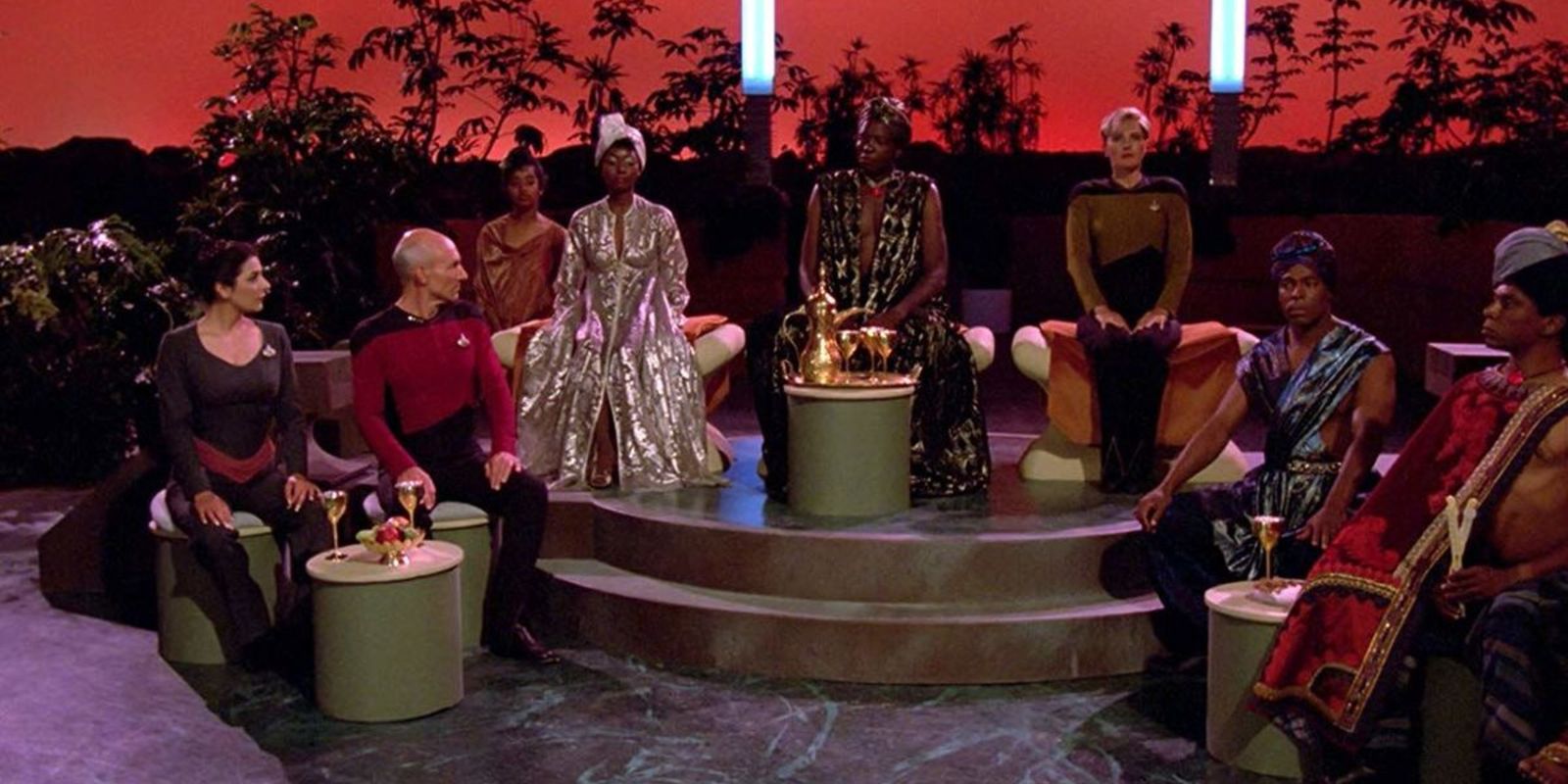
While episodes like DS9's "Far Beyond the Stars" handle the issues of racism carefully and intelligently, not every Star Trek episode is as well crafted. In the TNG Season 1, episode "Code of Honor" the crew of the Enterprise is tasked with delivering vaccines to the Ligonians when Tasha Yar is kidnapped by a Ligonian and is going to be forced to marry him.
What makes this episode a sore spot for fans is that the Ligonians, who are presented as a less advanced society, are all played by Black men and women who are dressed in traditional African-like designs. Fans rightly saw the episode as offensive.
1 The Irish Unification of 2024 Was Delayed By Nearly 20 Years
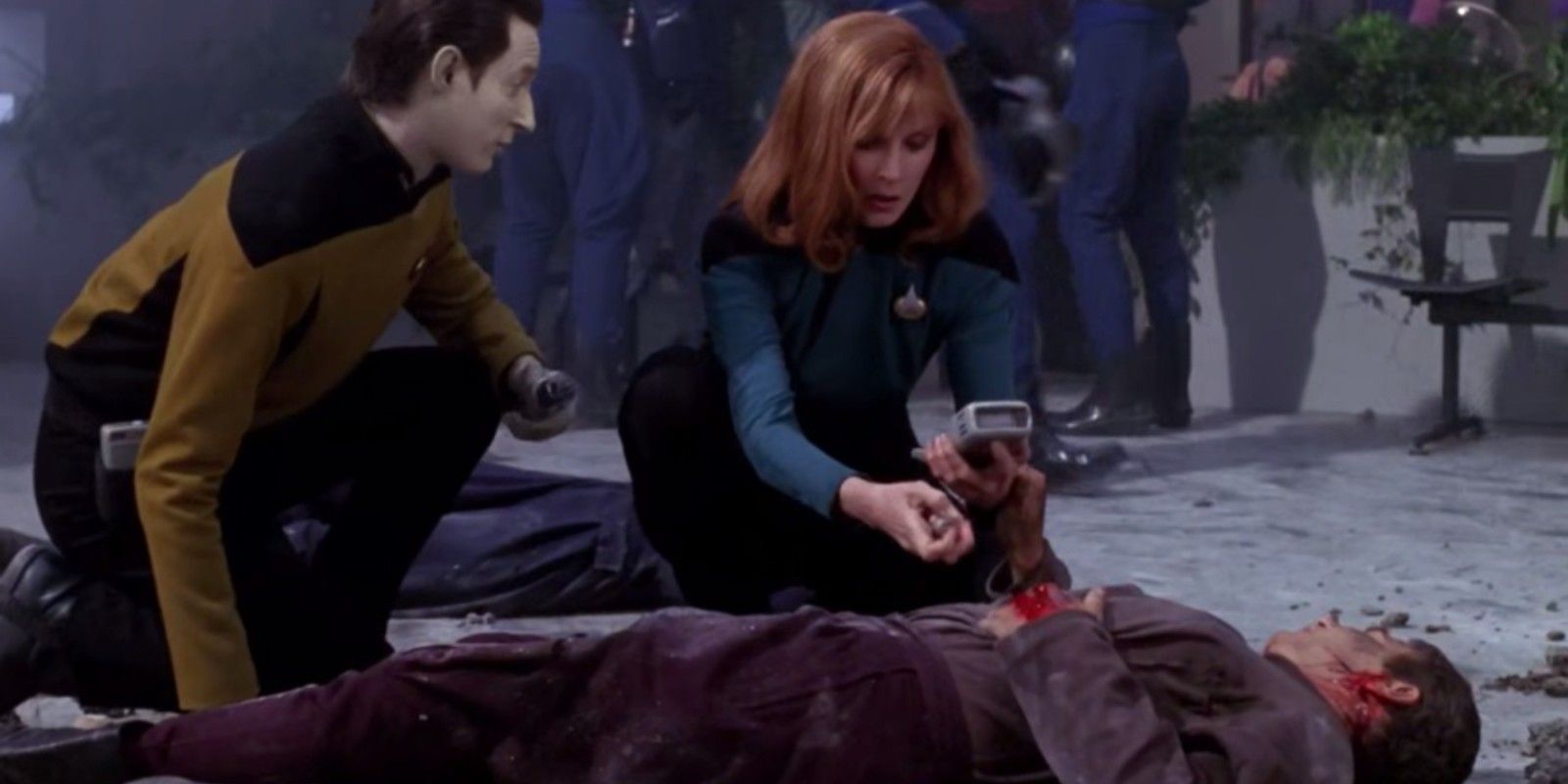
"The High Ground," a Season 3 episode of TNG, deals with terrorism head-on as Doctor Crusher finds herself abducted by terrorists. Most of the episode is fine, but the moment that caused issues is when Data mentions that terrorism helped lead to the "Irish Unification of 2024."
This one line caused an uproar in the UK, where the violent conflict in Ireland was very much still happening. The episode was so controversial that it didn't air in the UK and the Republic of Ireland until 2007, 17 years after the episode was made.

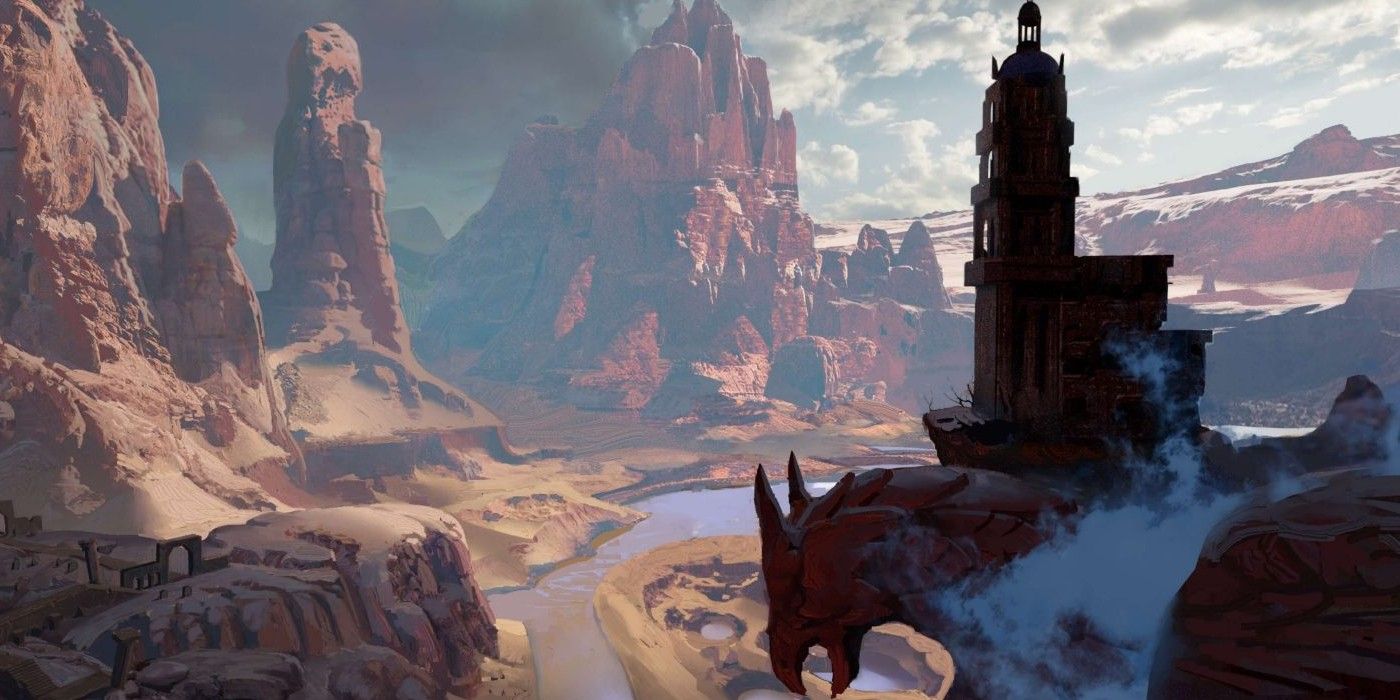
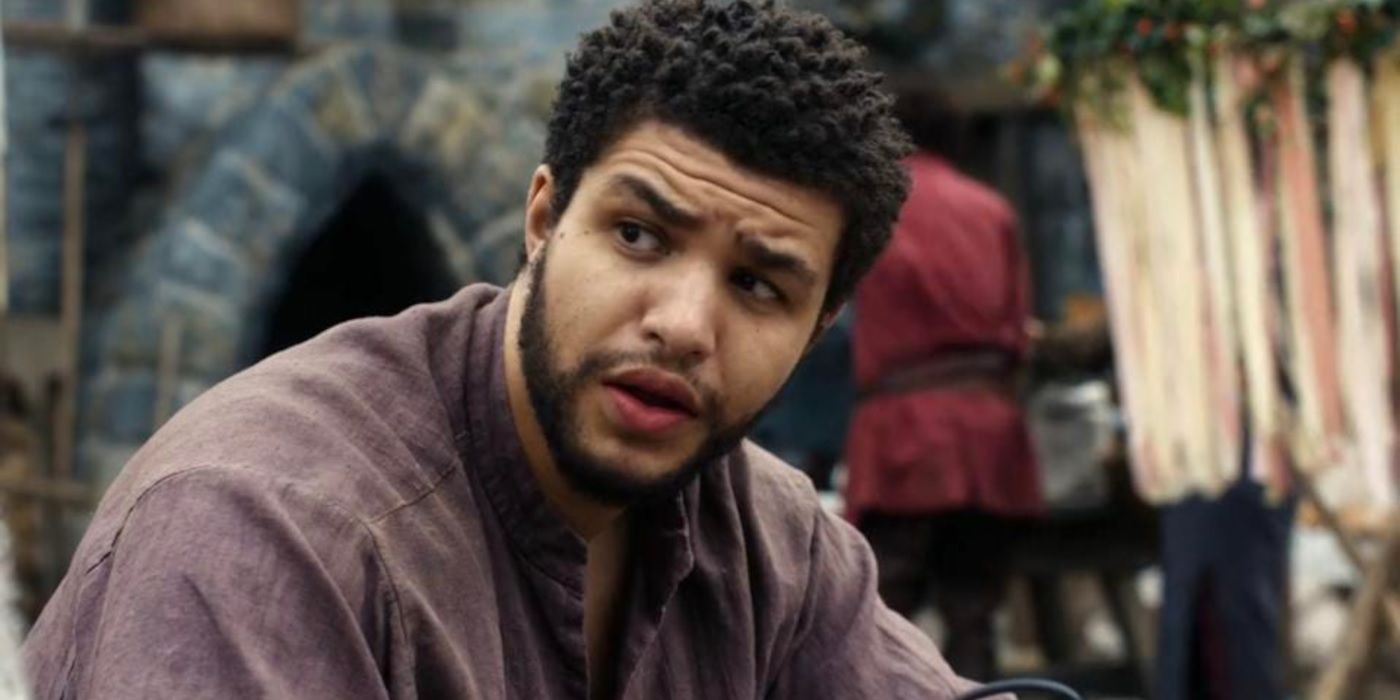
0 Comments